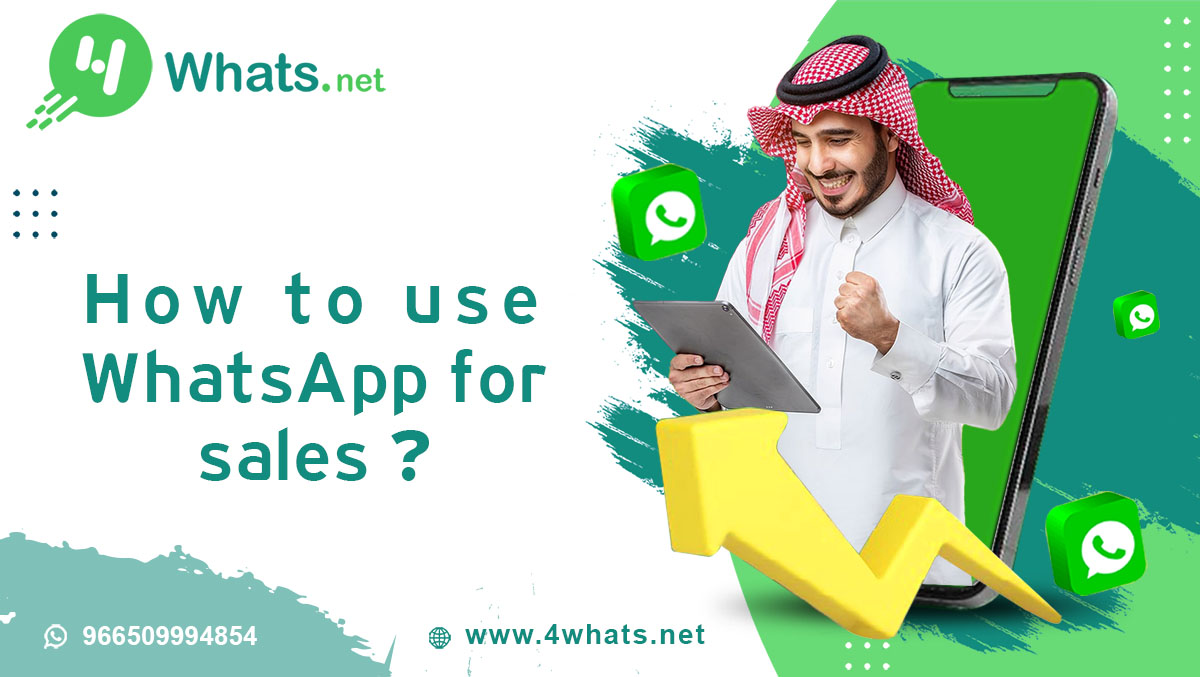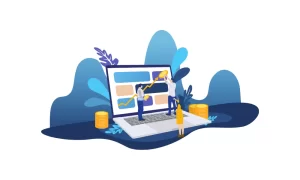As businesses increasingly look to direct messaging for more personalized customer interactions, WhatsApp has emerged as a powerful platform for sell on whatsapp and customer engagement. With over 2 billion active users globally, WhatsApp offers an invaluable opportunity to connect with customers in real time, making it an ideal tool for business communication and relationship-building. The platform’s simplicity, coupled with features like WhatsApp Business, provides everything companies need to streamline sales processes and enhance customer satisfaction.
For brands aiming to grow their customer base and boost sales conversions, WhatsApp allows for personalized, timely interactions that create a stronger customer connection than traditional email marketing. This makes it an effective way to nurture leads, address inquiries, and deliver targeted promotions directly to customers’ smartphones.
In this guide, we’ll explore strategies and best practices for leveraging WhatsApp for sales, ensuring businesses can tap into this popular app to meet and exceed their sales goals.
Why is WhatsApp a powerful sales tool?
WhatsApp’s strength in sales comes from its ease of use and widespread adoption. Its constant presence on most people’s devices makes it an indispensable and direct communication channel.
Firstly, WhatsApp enables businesses to have effective dialogues with their customers. The transparency and interactivity offered by WhatsApp make it an unparalleled communication tool, allowing for direct and instant exchange of information and responses to customer inquiries. This enhances the quality of interactions and improves the customer purchasing experience.
Secondly, WhatsApp provides a unique opportunity for personalized offers and promotions. It enables businesses to deliver targeted marketing messages that align with customers’ needs and expectations, increasing the likelihood of persuasion and purchase.
Thirdly, the ability to receive instant feedback and comments from customers is a significant advantage. WhatsApp can be used as a channel to gather reviews and opinions, helping businesses understand customer needs and preferences. This enables them to improve products and services based on customer desires and expectations.
WhatsApp has proven to be an effective tool not only for improving communication between businesses and customers but also for building lasting relationships that contribute to successful sales and increased customer satisfaction.
How WhatsApp Enhances the Customer Purchasing Experience
WhatsApp has proven to be a powerful tool that significantly enhances the customer purchasing experience in several ways. Here’s how:
Facilitating Communication: WhatsApp provides a seamless and direct communication channel between customers and service providers. Customers can easily ask questions and obtain necessary information instantly, creating efficient communication and streamlining the purchasing process.
Direct Support: Offering round-the-clock customer service and technical support, WhatsApp allows customers to get help and resolve issues effectively through direct conversations.
Sending Updates and Offers: WhatsApp enables businesses to send updates on order status and offer special deals and discounts, encouraging customers to make more purchases.
Remarketing: WhatsApp can be used to send personalized messages to customers based on their previous purchasing behavior, incentivizing them to make repeat purchases.
Order Verification: WhatsApp enhances customer trust in the purchasing process by providing immediate order confirmation. For instance, after completing a purchase, customers can receive an instant confirmation message containing order details and tracking information, providing reassurance and confidence.
Personalized Interaction: Customers can directly communicate with sales or support teams, and their inquiries and concerns are addressed individually and personally. This type of communication builds a strong relationship between the customer and the brand, fostering trust and loyalty.
Facilitating Payments: WhatsApp allows for easy and secure payment processing. Businesses can send direct payment links to customers. Consequently, using WhatsApp for sales is a convenient and secure method that speeds up and simplifies the purchasing and payment process for customers, leading to increased customer satisfaction and a better overall purchasing experience.
Through these features, using WhatsApp in sales provides an enhanced and streamlined purchasing experience that meets customer expectations and encourages them to engage and purchase repeatedly.
How To Send Bulk Messages on WhatsApp without number
How to Sell on WhatsApp
1. Create a Product Catalog
Creating an effective product catalog is a fundamental step in selling on WhatsApp. The catalog should include high-quality images of each product, along with clear descriptions that include features, sizes, and colors.
It’s also advisable to clearly state prices and provide information about shipping and delivery. Categorizing products into different sections makes it easier for customers to search, enhancing the overall shopping experience.
2. Effective Customer Communication
When looking to sell on WhatsApp, effective communication with customers is essential. Prompt responses and personalized interactions are key to keeping customers engaged. Use quick replies for frequently asked questions and provide concise product information.
Sending personalized updates on new products or special offers is also valuable, but remember to avoid overwhelming customers with excessive messages. Consistent and timely communication helps build trust, making it easier to sell on WhatsApp.
3. Provide Excellent Customer Service
Providing excellent customer service is foundational when you use WhatsApp for sales. Offering flexible payment options like bank transfers or cash on delivery can cater to different customer preferences. Following up on orders post-purchase shows dedication to customer satisfaction and enhances loyalty.
Additionally, having a clear return or exchange policy improves transparency, boosting customer confidence in your brand.
4. Creating Engaging Content
Creating engaging content is vital for success in selling on WhatsApp. High-quality images and videos that showcase products help capture customer interest. Customer stories and testimonials add credibility, encouraging new customers to trust your brand.
Content that includes usage tips or product care instructions offers extra value, fostering engagement. Effective, interactive content makes selling on WhatsApp more successful.
5. Offering Exclusive Deals to WhatsApp Customers
Offering exclusive deals through WhatsApp is a powerful way to sell on WhatsApp. Discounts or special offers available only to WhatsApp contacts foster a sense of exclusivity. Organizing contests or giveaways also boosts engagement and brand awareness.
Highlighting that these deals are time-limited creates urgency, prompting customers to act quickly. With the right approach, WhatsApp can be a highly effective sales tool.
6. Using Chatbots
When aiming to use WhatsApp for sales, chatbots can be an invaluable tool for enhancing customer experience. These automated systems provide immediate responses to frequently asked questions, making sure customer queries are handled without delay.
Chatbots can deliver details on products, prices, and payment methods, simplifying communication and improving efficiency.
Customizing chatbots ensures they respond with relevant, helpful information, which is essential to provide a seamless customer experience. By optimizing how you sell on WhatsApp through chatbots, you can engage customers effectively and increase sales.
7. Scheduling Messages
Effective communication timing is crucial for those who sell on WhatsApp. Scheduling messages for times when customers are most likely available—like evenings or weekends—can make interactions more effective. Avoid sending messages during business hours or inconvenient times, as this may disrupt customers.
Rather than overwhelming contacts with frequent messages, focus on delivering valuable content with each interaction. This careful timing improves the success of using WhatsApp as a sales tool.
8. Following up with Customers After Purchase
Following up post-purchase is a key step for anyone who aims to sell on WhatsApp. A thank-you message can show appreciation, while asking for feedback on the product or service strengthens the customer relationship. Inviting customers to leave a review enhances your credibility and attracts new prospects.
This follow-up allows you to address any concerns, fostering customer satisfaction and loyalty. Through consistent post-purchase engagement, WhatsApp becomes an even more effective channel for driving repeat sales and building trust.
How to Use WhatsApp Messages to Attract and Retain Customers
WhatsApp messaging is a powerful tool for attracting and retaining customers. Here’s a detailed guide on how to achieve this:
1. Targeted Promotions: Send personalized offers and discounts that highlight the value of your products or services. Tailor your messages to the specific needs and expectations of potential customers.
2. New Product Announcements: Inform customers about new products, services, and additional features.
3. Call to Action (CTAs): Encourage potential customers to take action, such as making a purchase or subscribing to a service.
4. Excellent Customer Service: Respond promptly to inquiries and provide immediate solutions to problems.
5. Exclusive Offers and Discounts: Send special offers to existing customers to encourage repeat purchases.
6. Valuable Content: Share informative and helpful content, such as product usage tips or related articles.
7. Gather Feedback and Reviews: Ask customers to provide ratings and reviews of your products and services.
8. Remarketing: Reconnect with previous customers with new offers or products related to their past purchases.
When used effectively, WhatsApp messaging can be a powerful tool to attract new customers and keep existing ones engaged and loyal to your brand.
How to Measure the Performance of Your WhatsApp Sales Campaigns
Measuring the performance of your WhatsApp sales campaigns is crucial for understanding the effectiveness of your strategy and making future improvements. Here are some key metrics to track:
1. Open Rate: Track the percentage of recipients who open your messages. A high open rate indicates that your message is engaging and relevant to your audience.
2. Click-Through Rate (CTR): If your messages contain links, tracking the click-through rate helps you understand the percentage of users who followed those links.
3. Response Rate: This metric shows how engaged your customers are with your content. It measures the percentage of people who responded to your messages.
4. Conversion Rate: The conversion rate is a key indicator of your campaign’s success. It calculates the percentage of customers who took a specific action (such as making a purchase) as a result of your messages.
5. Customer Satisfaction: Gather feedback and reviews about the customer experience. Customer satisfaction reflects the quality of your communication and service.
6. New and Unsubscribed Subscribers: Track the growth of your customer base and the number of customers who have unsubscribed. This shows the trends in customer growth and retention over time.
7. Return on Investment (ROI): Calculate the profit generated compared to the total cost of the WhatsApp campaign. ROI demonstrates the financial effectiveness of your campaign.
8. WhatsApp Analytics: Utilize WhatsApp’s built-in analytics tools to analyze the performance of your messages and user interactions.
In conclusion, effective communication and engaging content are key to building strong customer relationships when selling through WhatsApp. Post-purchase follow-ups and scheduling messages enhance the customer experience.
A helpful tool in this context is a WhatsApp bulk messaging tool like ForWhatsApp. With this tool, you can efficiently send bulk messages to a wide range of customers simultaneously, helping you promote offers and products more quickly and effectively. Utilizing such tools can significantly contribute to increasing sales and boosting brand loyalty.















